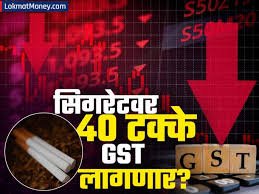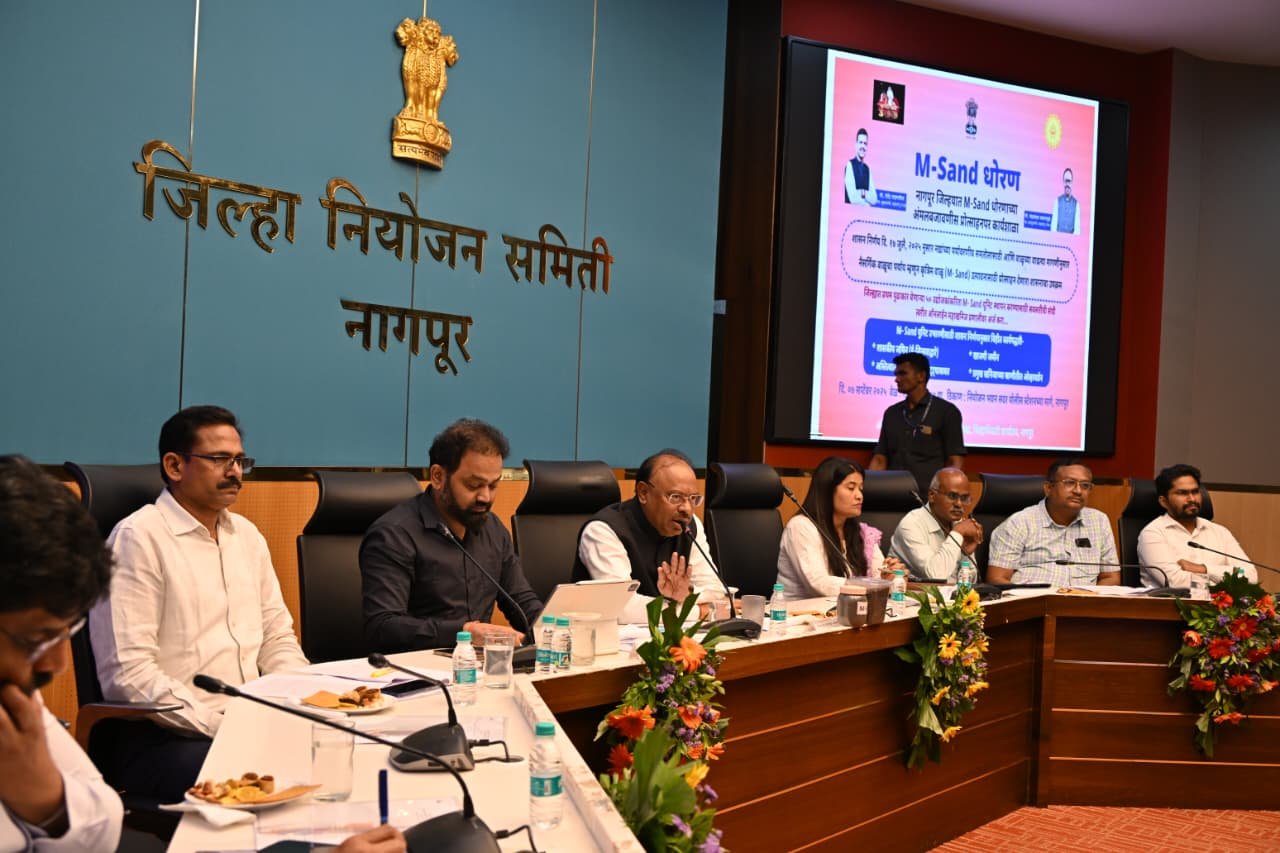
New GST Rules: 40% tax on cigarettes, cold drinks and sin goods, how will it affect your pocket?
Mumbai, September 4, 2025: The GST Council has recently announced major changes in the tax system, due to which 40 percent GST will be applicable on cigarettes, tobacco, cold drinks and other sin goods as well as luxury items. These new rules will be implemented from September 22, 2025, which will increase the prices of these goods and have a big impact on the pockets of consumers. Apart from this, GST will not have a direct impact on the prices of liquor, as it comes under the purview of state government excise duties and taxes. Know how these changes will affect your daily life and budget.
Changes in GST slabs: Now only two slabs
The GST Council, chaired by Union Finance Minister Nirmala Sitharaman, has decided to have only two slabs instead of four slabs (5%, 12%, 18% and 28%) to simplify the tax system. In this, the tax slabs of 5 percent and 18 percent will remain, while the 12 percent and 28 percent slabs have been completely removed. However, a special tax slab of 40 percent has been introduced for sin goods and luxury goods. The aim of these changes is to simplify the tax system and increase the government's revenue collection.
40% GST on sin goods: Which goods will be affected?
Sin goods are those goods that are considered harmful to health or have a negative social impact. These include cigarettes, tobacco, pan masala, gutkha, and sugary cold drinks. Apart from this, 40 percent GST will also be applicable on petrol cars with a capacity of more than 1,200 cc, diesel cars with a capacity of more than 1,500 cc, motorcycles with a capacity of more than 350 cc, yachts, and aircraft for personal use.
Tax hike on cold drinks and caffeinated drinks
Cold drink lovers will have to pay a higher price in the coming days. The GST on Coca-Cola, Pepsi, and other sugary or caffeinated carbonated drinks has now been increased from 28 percent to 40 percent. This is likely to significantly increase the price of these drinks. For example, if a cold drink costs Rs 50, its price may increase to Rs 55-60 as per the new tax. This will directly impact the pockets of consumers, especially the young and regular consumers of cold drinks.
Tax burden on cigarettes and tobacco products
Cigarettes, gutkha, pan masala, and other tobacco products will also be subject to 40 percent GST. Currently, these products are subject to 28 percent GST and additional cess, which takes the total tax burden to 88 percent. In the new GST structure, the government has clarified that the existing tax and cess on tobacco products will continue till the outstanding loan is repaid. However, after the loan is repaid, these products will also be included in the 40 percent slab. This is likely to further increase the prices of cigarettes and tobacco products.
Tax hike on luxury goods
Luxury cars, motorcycles, yachts, and personal aircraft will also be subject to 40 percent GST. This will increase the prices of these goods, which will impact the upper-middle class and wealthy consumers. In particular, the prices of petrol cars with a capacity of more than 1,200 cc and diesel cars with a capacity of more than 1,500 cc are likely to increase significantly.
No impact on alcohol
A comforting fact for alcohol lovers is that GST is not applicable on alcohol. Tax and excise duty on liquor fall under the jurisdiction of the state government. Hence, these GST changes will not have a direct impact on the prices of liquor. However, since taxes on liquor vary across states, there is a difference in prices. For example, excise duty on liquor in Maharashtra may result in higher prices than in other states.
What is the government's objective?
The government's objective behind imposing taxes on sin goods and luxury goods is to reduce the consumption of goods that are harmful to health and to increase revenue. Excessive consumption of cigarettes, tobacco, and sugary drinks increases the risk of diseases like cancer, diabetes, and heart disease. Therefore, the government has tried to reduce their consumption by imposing higher taxes on these goods. Apart from this, the revenue generated from this tax will be used for health and welfare schemes.
What will be the impact on consumers?
These new GST rules will have a direct impact on the pockets of consumers. Let's look at some of the major impacts:
Cold drinks and caffeinated drinks: Their prices are likely to increase by 12-15 percent. This will increase the prices of these beverages in restaurants, cafes, and retail outlets.
Cigarettes and tobacco: Currently, these products are taxed heavily due to cess and GST, and the price will increase further if the 40 percent slab is implemented in the future.
Luxury cars and motorcycles: Upper-middle class and wealthy consumers will have to pay more when buying a new car or motorcycle.
Economic impact: If the consumption of sin goods and luxury goods decreases, it may affect the related industries. For example, the cold drink and tobacco industries are at risk of reduced demand.
What will be cheaper for the common man?
The GST Council has reduced taxes on several daily consumption items, which will provide relief to the common man. These include:
Milk and milk products: Ultra-high temperature (UHT) milk will now be tax-free, while condensed milk, butter, and cheese will be tax-free.
Mumbai, September 4, 2025: The GST Council has recently announced major changes in the tax system, due to which 40 percent GST will be applicable on cigarettes, tobacco, cold drinks and other sin goods as well as luxury items. These new rules will be implemented from September 22, 2025, which will increase the prices of these goods and have a big impact on the pockets of consumers. Apart from this, GST will not have a direct impact on the prices of liquor, as it comes under the purview of state government excise duties and taxes. Know how these changes will affect your daily life and budget.
Changes in GST slabs: Now only two slabs
The GST Council, chaired by Union Finance Minister Nirmala Sitharaman, has decided to have only two slabs instead of four slabs (5%, 12%, 18% and 28%) to simplify the tax system. In this, the tax slabs of 5 percent and 18 percent will remain, while the 12 percent and 28 percent slabs have been completely removed. However, a special tax slab of 40 percent has been introduced for sin goods and luxury goods. The aim of these changes is to simplify the tax system and increase the government's revenue collection.
40% GST on sin goods: Which goods will be affected?
Sin goods are those goods that are considered harmful to health or have a negative social impact. These include cigarettes, tobacco, pan masala, gutkha, and sugary cold drinks. Apart from this, 40 percent GST will also be applicable on petrol cars with a capacity of more than 1,200 cc, diesel cars with a capacity of more than 1,500 cc, motorcycles with a capacity of more than 350 cc, yachts, and aircraft for personal use.
Tax hike on cold drinks and caffeinated drinks
Cold drink lovers will have to pay a higher price in the coming days. The GST on Coca-Cola, Pepsi, and other sugary or caffeinated carbonated drinks has now been increased from 28 percent to 40 percent. This is likely to significantly increase the price of these drinks. For example, if a cold drink costs Rs 50, its price may increase to Rs 55-60 as per the new tax. This will directly impact the pockets of consumers, especially the young and regular consumers of cold drinks.
Tax burden on cigarettes and tobacco products
Cigarettes, gutkha, pan masala, and other tobacco products will also be subject to 40 percent GST. Currently, these products are subject to 28 percent GST and additional cess, which takes the total tax burden to 88 percent. In the new GST structure, the government has clarified that the existing tax and cess on tobacco products will continue till the outstanding loan is repaid. However, after the loan is repaid, these products will also be included in the 40 percent slab. This is likely to further increase the prices of cigarettes and tobacco products.
Tax hike on luxury goods
Luxury cars, motorcycles, yachts, and personal aircraft will also be subject to 40 percent GST. This will increase the prices of these goods, which will impact the upper-middle class and wealthy consumers. In particular, the prices of petrol cars with a capacity of more than 1,200 cc and diesel cars with a capacity of more than 1,500 cc are likely to increase significantly.
No impact on alcohol
A comforting fact for alcohol lovers is that GST is not applicable on alcohol. Tax and excise duty on liquor fall under the jurisdiction of the state government. Hence, these GST changes will not have a direct impact on the prices of liquor. However, since taxes on liquor vary across states, there is a difference in prices. For example, excise duty on liquor in Maharashtra may result in higher prices than in other states.
What is the government's objective?
The government's objective behind imposing taxes on sin goods and luxury goods is to reduce the consumption of goods that are harmful to health and to increase revenue. Excessive consumption of cigarettes, tobacco, and sugary drinks increases the risk of diseases like cancer, diabetes, and heart disease. Therefore, the government has tried to reduce their consumption by imposing higher taxes on these goods. Apart from this, the revenue generated from this tax will be used for health and welfare schemes.
What will be the impact on consumers?
These new GST rules will have a direct impact on the pockets of consumers. Let's look at some of the major impacts:
Cold drinks and caffeinated drinks: Their prices are likely to increase by 12-15 percent. This will increase the prices of these beverages in restaurants, cafes, and retail outlets.
Cigarettes and tobacco: Currently, these products are taxed heavily due to cess and GST, and the price will increase further if the 40 percent slab is implemented in the future.
Luxury cars and motorcycles: Upper-middle class and wealthy consumers will have to pay more when buying a new car or motorcycle.
Economic impact: If the consumption of sin goods and luxury goods decreases, it may affect the related industries. For example, the cold drink and tobacco industries are at risk of reduced demand.
What will be cheaper for the common man?
The GST Council has reduced taxes on several daily consumption items, which will provide relief to the common man. These include:
Milk and milk products: Ultra-high temperature (UHT) milk will now be tax-free, while condensed milk, butter, and cheese will be tax-free.
Changes in GST slabs: Now only two slabs
The GST Council, chaired by Union Finance Minister Nirmala Sitharaman, has decided to have only two slabs instead of four slabs (5%, 12%, 18% and 28%) to simplify the tax system. In this, the tax slabs of 5 percent and 18 percent will remain, while the 12 percent and 28 percent slabs have been completely removed. However, a special tax slab of 40 percent has been introduced for sin goods and luxury goods. The aim of these changes is to simplify the tax system and increase the government's revenue collection.
40% GST on sin goods: Which goods will be affected?
Sin goods are those goods that are considered harmful to health or have a negative social impact. These include cigarettes, tobacco, pan masala, gutkha, and sugary cold drinks. Apart from this, 40 percent GST will also be applicable on petrol cars with a capacity of more than 1,200 cc, diesel cars with a capacity of more than 1,500 cc, motorcycles with a capacity of more than 350 cc, yachts, and aircraft for personal use.
Tax hike on cold drinks and caffeinated drinks
Cold drink lovers will have to pay a higher price in the coming days. The GST on Coca-Cola, Pepsi, and other sugary or caffeinated carbonated drinks has now been increased from 28 percent to 40 percent. This is likely to significantly increase the price of these drinks. For example, if a cold drink costs Rs 50, its price may increase to Rs 55-60 as per the new tax. This will directly impact the pockets of consumers, especially the young and regular consumers of cold drinks.
Tax burden on cigarettes and tobacco products
Cigarettes, gutkha, pan masala, and other tobacco products will also be subject to 40 percent GST. Currently, these products are subject to 28 percent GST and additional cess, which takes the total tax burden to 88 percent. In the new GST structure, the government has clarified that the existing tax and cess on tobacco products will continue till the outstanding loan is repaid. However, after the loan is repaid, these products will also be included in the 40 percent slab. This is likely to further increase the prices of cigarettes and tobacco products.
Tax hike on luxury goods
Luxury cars, motorcycles, yachts, and personal aircraft will also be subject to 40 percent GST. This will increase the prices of these goods, which will impact the upper-middle class and wealthy consumers. In particular, the prices of petrol cars with a capacity of more than 1,200 cc and diesel cars with a capacity of more than 1,500 cc are likely to increase significantly.
No impact on alcohol
A comforting fact for alcohol lovers is that GST is not applicable on alcohol. Tax and excise duty on liquor fall under the jurisdiction of the state government. Hence, these GST changes will not have a direct impact on the prices of liquor. However, since taxes on liquor vary across states, there is a difference in prices. For example, excise duty on liquor in Maharashtra may result in higher prices than in other states.
What is the government's objective?
The government's objective behind imposing taxes on sin goods and luxury goods is to reduce the consumption of goods that are harmful to health and to increase revenue. Excessive consumption of cigarettes, tobacco, and sugary drinks increases the risk of diseases like cancer, diabetes, and heart disease. Therefore, the government has tried to reduce their consumption by imposing higher taxes on these goods. Apart from this, the revenue generated from this tax will be used for health and welfare schemes.
What will be the impact on consumers?
These new GST rules will have a direct impact on the pockets of consumers. Let's look at some of the major impacts:
Cold drinks and caffeinated drinks: Their prices are likely to increase by 12-15 percent. This will increase the prices of these beverages in restaurants, cafes, and retail outlets.
Cigarettes and tobacco: Currently, these products are taxed heavily due to cess and GST, and the price will increase further if the 40 percent slab is implemented in the future.
Luxury cars and motorcycles: Upper-middle class and wealthy consumers will have to pay more when buying a new car or motorcycle.
Economic impact: If the consumption of sin goods and luxury goods decreases, it may affect the related industries. For example, the cold drink and tobacco industries are at risk of reduced demand.
What will be cheaper for the common man?
The GST Council has reduced taxes on several daily consumption items, which will provide relief to the common man. These include:
Milk and milk products: Ultra-high temperature (UHT) milk will now be tax-free, while condensed milk, butter, and cheese will be tax-free.

.jpg)
















